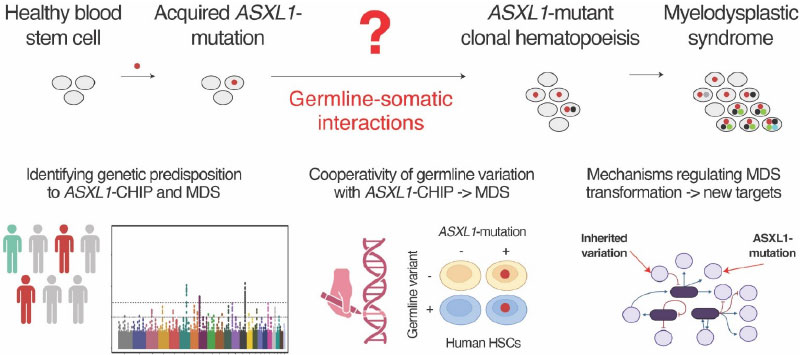
Researcher Profiles

Vijay Sankaran, M.D., Ph.D.
2025 Funding Recipient
Exploring cooperation between somatic ASXL1 mutations and inherited variation that drive myelodysplastic syndromes
Discovery Research Grant 2025
PROJECT SUMMARY
Myelodysplastic syndromes (MDS) develop from blood forming stem cells as a result of mutations that cause them to grow excessively in the bone marrow, disrupting blood and immune cell development. One of the most common mutations that drives MDS is in a gene called ASXL1, present in ~20% cases. However, ASXL1 mutations also commonly occur during normal aging. Understanding why some individuals with ASXL1 mutations remain healthy, and others progress to MDS might reveal factors that drive the disease and suggest new treatments. One important factor that controls risk for MDS is inherited genetic variation that modifies the risk of acquiring MDS in later life, although this remains poorly understood. In preliminary work, we have identified genetic variation associated with developing large pre-MDS ASXL1-mutant stem cell clones. We have used genome editing to model one such protective variant (that downregulates MSI2) in blood stem cells, showing this modifies the impact of acquired ASXL1 mutations. These pilot data suggest a previously unrecognized cooperativity between inherited variation and acquired mutations in driving MDS. In this proposal, we seek to fully define genetic variation predisposing to MDS, and to decipher mechanisms by which this interacts with ASXL1 mutations can transform normal blood forming cells to MDS. These studies are expected to identify novel genetic drivers of MDS, and new approaches to prevent or treat MDS in the future.

